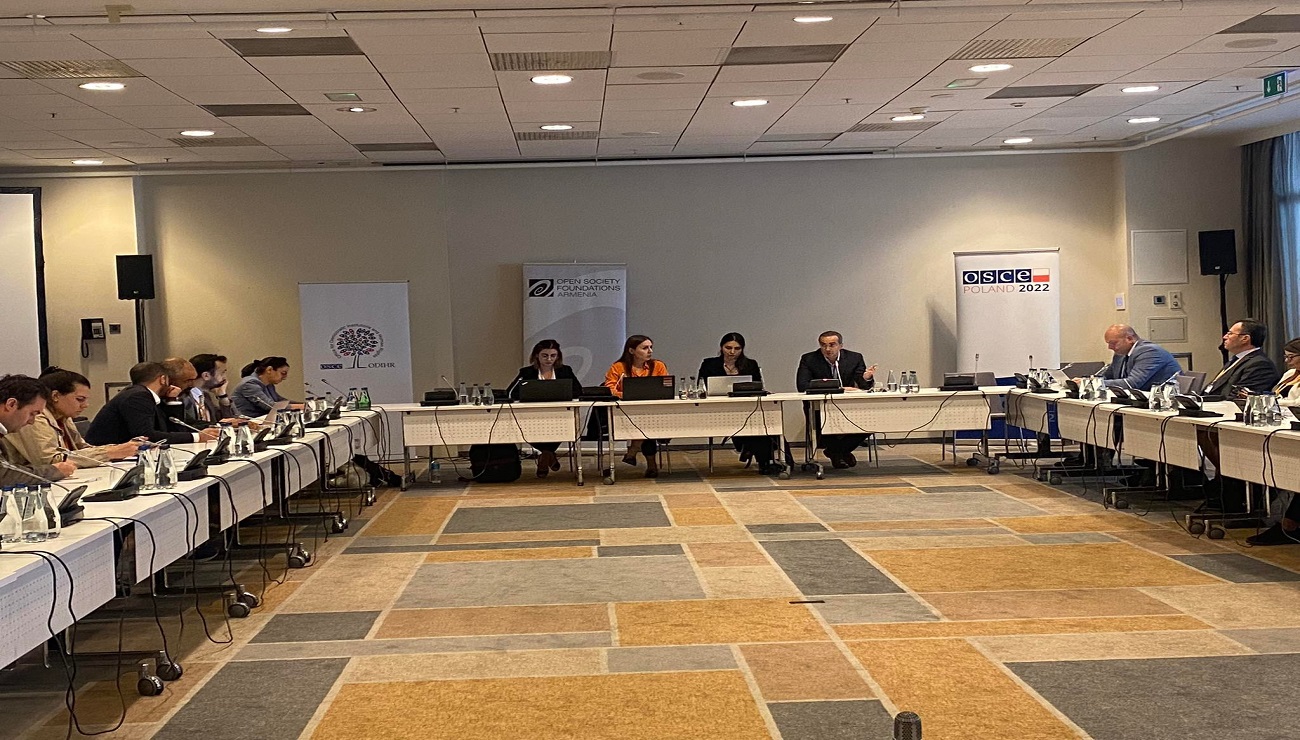





October 7, 2022
On October 6 a discussion entitled “Human Rights and Humanitarian Issues after the 2020 Nagorno-Karabakh War” was held in Warsaw in the scope of Human Dimension Conference of the OSCE Office for Democratic Institutions and Human Rights (ODIHR).
The event was organized by the Open Society Foundations – Armenia jointly with the Helsinki Citizens’ Assembly-Vanadzor Office, “Protection of Rights without Borders” NGO, and Law Development and Protection Foundation.
This discussion and the visit of several civil society representatives to Warsaw served the purpose of raising awareness of the OSCE participating states and international community about the war crimes and gross violations of the International Humanitarian Law committed by Azerbaijan during and after the 44-day war in 2020, Azerbaijan’s continuing aggression against Artsakh and Armenia and its consequences as well as calling on the OSCE to deploy mechanisms preventing the recurrence of similar crimes in the future.
Representatives from the OSCE ODIHR, OSCE participating states’ delegations, civil society, international human rights organizations and experts attended the discussion.
“Thousands have died in the 44-day war in Artsakh, but it did not bring an end to this long lasting conflict in the South Caucasus. Today Azerbaijan continues its aggression against Armenia and Artsakh. The victims of atrocities by the Azeri armed forces as well as their families yet await for justice,” – stated in his opening remarks Yervand Shirinyan, the acting director of Open Society Foundations – Armenia.
Representatives of the Armenian civil society presented in detail facts about racist and Armenophobic state policies implemented in Azerbaijan, cases of torturing Armenian POWs and civilians, and specifically emphasized the need for immediate return of all the Armenian POWs.
Hasmik Harutyunyan, legal expert of the “Protection of Rights without Borders” NGO, emphasized in her statement that the “war crimes committed by the Azeri military, including summary executions of civilians and servicepersons, beheading and torturing of people are not detached crimes but rather a vivid consequence of the Armenophobia, impunity and glorification environment promoted by the government in Azerbaijan.”
In their statements the human rights activists demanded an adequate and more definite international reaction to Azerbaijan’s aggression against Armenia. It was emphasized that in addition to condemning Baku’s actions, it is time to clearly respond to the consequences of continuing aggression inter alia through international sanctions. Since the end of the war Armenia’s civil society called on international organizations – UN, EU, OSCE – to ensure wider scale international engagement and presence in the region to prevent potential aggravation of the situation and new aggression by Azerbaijan.
During the discussion in Warsaw civil society representatives have specifically emphasized the need to deploy a civilian observation mission on the border between Armenia and Azerbaijan to exclude any use of force and new violations of human rights.